9 Facts About Heart Disease to Mark American Heart Month
February 17, 2022
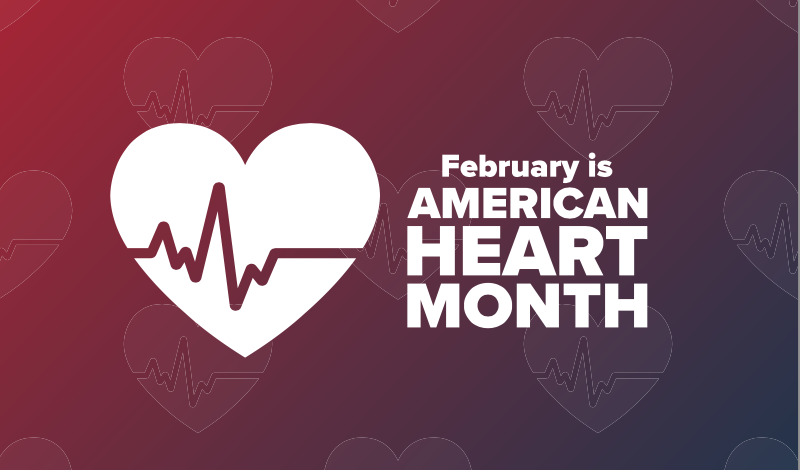 1- We can’t prevent all heart disease, but we can take steps to lower our risk of developing high blood pressure (hypertension), heart attacks, and other heart-related issues. Measures include eating a heart-healthy diet, getting regular exercise, and limiting stress as much as possible. Speak with your healthcare provider if you need help maintaining or improving your heart health.
1- We can’t prevent all heart disease, but we can take steps to lower our risk of developing high blood pressure (hypertension), heart attacks, and other heart-related issues. Measures include eating a heart-healthy diet, getting regular exercise, and limiting stress as much as possible. Speak with your healthcare provider if you need help maintaining or improving your heart health. 2- One out of every 4 deaths in the U.S. is related to heart disease. It is the leading cause of death in the U.S., followed by cancer and sepsis. The most common cause of heart-related deaths is coronary heart disease (42.1%), followed by stroke (17%), hypertension (11%), heart failure (9.6%), arterial disease (2.9%), and other cardiovascular diseases (17.4%).
2- One out of every 4 deaths in the U.S. is related to heart disease. It is the leading cause of death in the U.S., followed by cancer and sepsis. The most common cause of heart-related deaths is coronary heart disease (42.1%), followed by stroke (17%), hypertension (11%), heart failure (9.6%), arterial disease (2.9%), and other cardiovascular diseases (17.4%).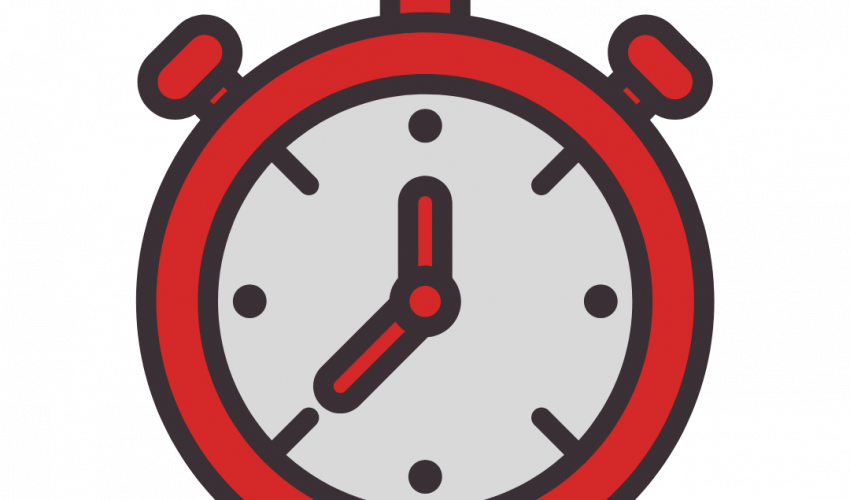 3- Every 40 seconds, someone in the U.S. has a heart attack (myocardial infarction). For 605,000 individuals every year, it is their first heart attack; 200,000 people had a previous one. People don’t always know they are having a heart attack. About 1 in 5 heart attacks are silent heart attacks, which cause no or mild symptoms.
3- Every 40 seconds, someone in the U.S. has a heart attack (myocardial infarction). For 605,000 individuals every year, it is their first heart attack; 200,000 people had a previous one. People don’t always know they are having a heart attack. About 1 in 5 heart attacks are silent heart attacks, which cause no or mild symptoms.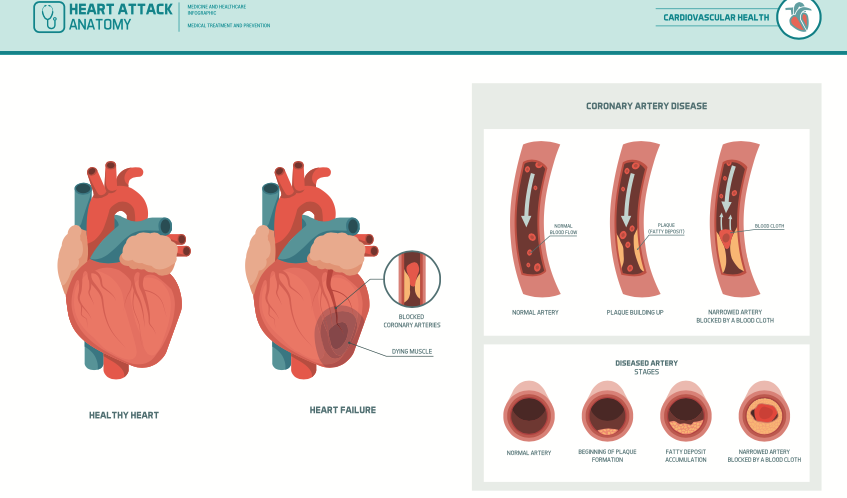 4- A heart attack is not the same as a cardiac arrest. A cardiac arrest occurs when the heart suddenly stops. A heart attack occurs when the blood flow to the heart is blocked. Heart tissue begins to die as it doesn’t get the oxygen and nutrients it needs, and the heart struggles to pump.
4- A heart attack is not the same as a cardiac arrest. A cardiac arrest occurs when the heart suddenly stops. A heart attack occurs when the blood flow to the heart is blocked. Heart tissue begins to die as it doesn’t get the oxygen and nutrients it needs, and the heart struggles to pump. 5- The most common time of year for heart attacks is Christmas Day, followed by December 26th and then January 1. Holidays and special events can cause anxiety and stress. People may also try strenuous activities, or overeat or drink, during special gatherings and vacations, contributing to heart attacks.
5- The most common time of year for heart attacks is Christmas Day, followed by December 26th and then January 1. Holidays and special events can cause anxiety and stress. People may also try strenuous activities, or overeat or drink, during special gatherings and vacations, contributing to heart attacks. 6- People with heart failure are at increased risk for contracting infections, particularly respiratory infections like pneumonia. Any infection can lead to sepsis. They also have a higher risk of poor outcomes after sepsis than people with normal heart function.
6- People with heart failure are at increased risk for contracting infections, particularly respiratory infections like pneumonia. Any infection can lead to sepsis. They also have a higher risk of poor outcomes after sepsis than people with normal heart function.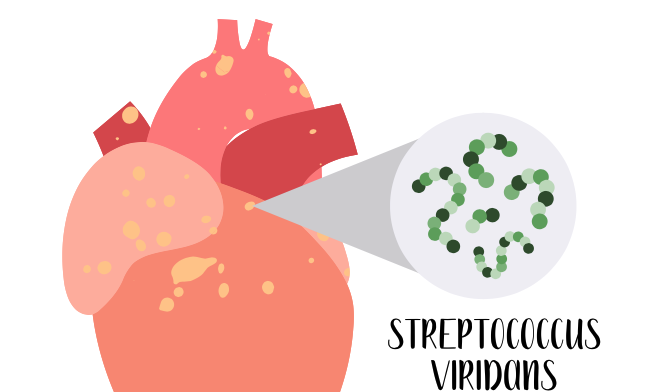 7- Infection in the heart lining or heart valves (infective endocarditis) can trigger sepsis. Those at highest risk of contracting endocarditis are people who have a damaged heart valve, an artificial heart valve, or a heart defect.
7- Infection in the heart lining or heart valves (infective endocarditis) can trigger sepsis. Those at highest risk of contracting endocarditis are people who have a damaged heart valve, an artificial heart valve, or a heart defect.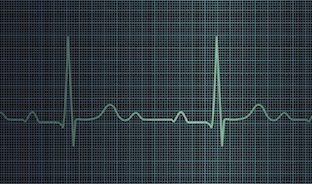 8- Sepsis survivors can be left with heart damage. Proteins released into the blood called histones can damage the heart muscles , resulting in heart complications.
8- Sepsis survivors can be left with heart damage. Proteins released into the blood called histones can damage the heart muscles , resulting in heart complications. 9- If you have a history of heart disease, you are at increased risk for developing infections and sepsis. Learn about sepsis prevention here . If you had sepsis and are concerned about your heart health, speak with your healthcare provider. If you have heart damage, you may be monitored by a cardiologist.
9- If you have a history of heart disease, you are at increased risk for developing infections and sepsis. Learn about sepsis prevention here . If you had sepsis and are concerned about your heart health, speak with your healthcare provider. If you have heart damage, you may be monitored by a cardiologist.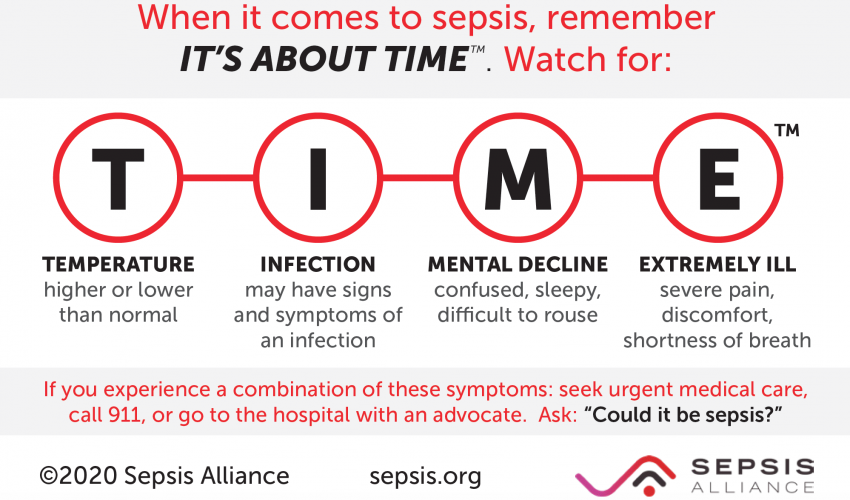 If you are concerned that you or someone you know may have sepsis, this is a medical emergency. Seek help immediately. Call 911 or go to the closest emergency department. If you are ill, please do not drive yourself to avoid the risk of an accident on the way there.
If you are concerned that you or someone you know may have sepsis, this is a medical emergency. Seek help immediately. Call 911 or go to the closest emergency department. If you are ill, please do not drive yourself to avoid the risk of an accident on the way there.





























